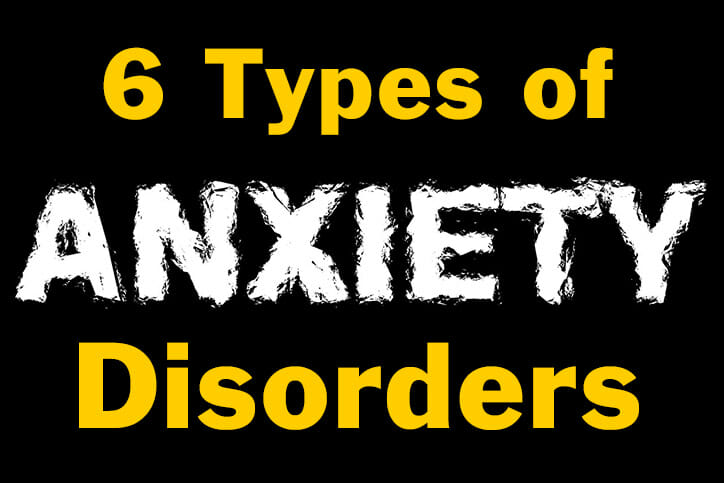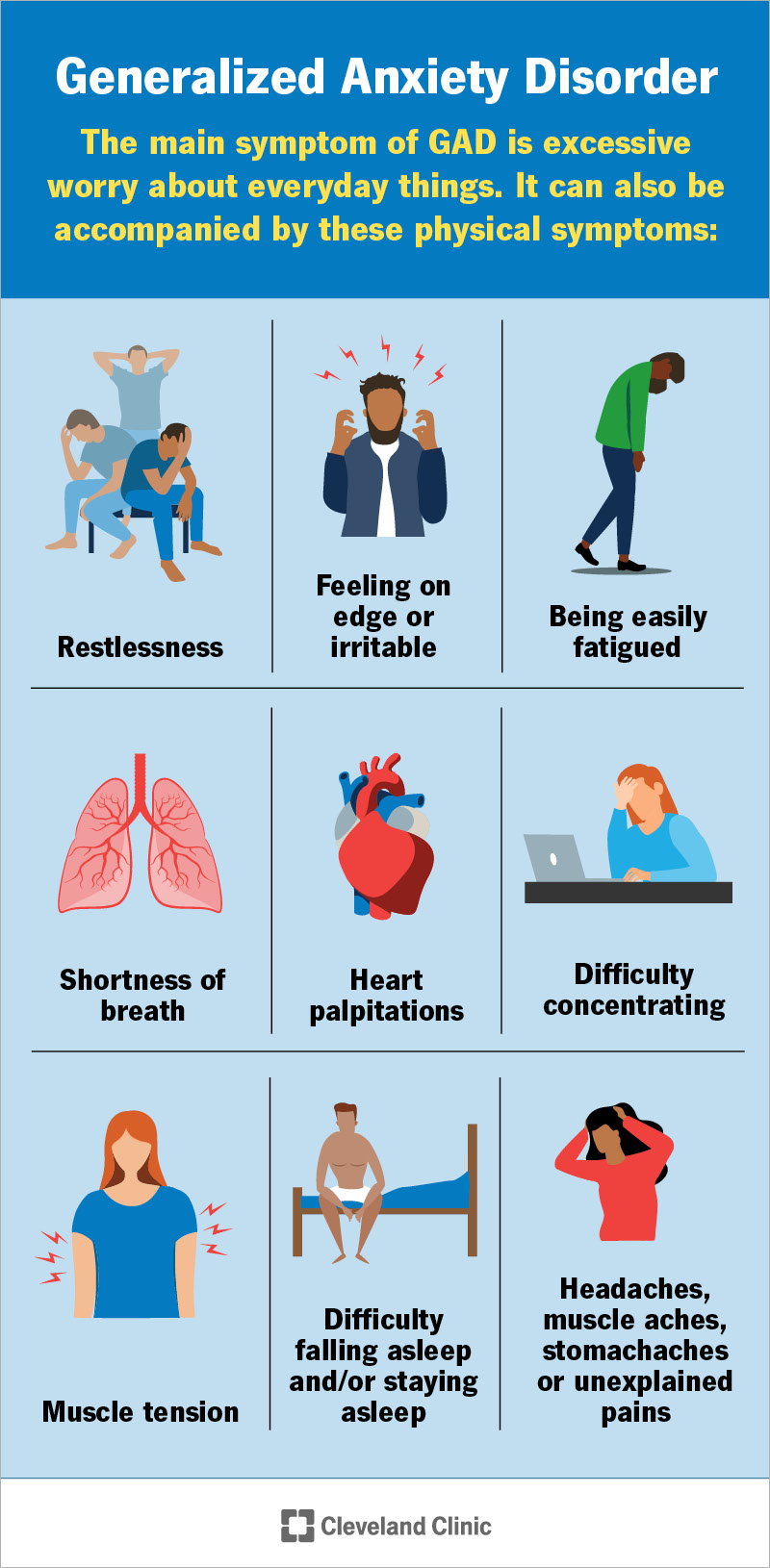Anxiety disorders affect millions worldwide, causing distress and disruption in daily life. Understanding the root causes, symptoms, and available treatments is crucial for managing this condition effectively.
Anxiety disorders are more common than most people think. They can affect anyone at any age, and their impact can be profound. These disorders can make even simple tasks feel overwhelming. The good news is, with the right information, you can manage anxiety effectively.
Learning about the causes, recognizing the symptoms, and exploring the treatment options can empower you to take control. This blog post will guide you through everything you need to know about anxiety disorders, offering insights that can help you or someone you care about. Stay with us as we dive into this important topic.
Introduction To Anxiety Disorders
Anxiety disorders are common mental health conditions. They affect millions of people worldwide. Understanding anxiety is crucial for managing and treating it. This section explores the basics of anxiety disorders. It explains what anxiety is and why it's important to understand these disorders.
What Is Anxiety?
Anxiety is a normal response to stress. It can be helpful in some situations. Anxiety alerts you to dangers. It helps you stay focused. But for some people, anxiety becomes overwhelming. This can interfere with daily activities. Anxiety disorders include conditions like generalized anxiety disorder, panic disorder, and social anxiety disorder.
Here are some common symptoms of anxiety:
- Excessive worry
- Restlessness
- Fatigue
- Difficulty concentrating
- Irritability
- Sleep problems
Importance Of Understanding Anxiety Disorders
Recognizing anxiety disorders is vital. Early detection leads to better outcomes. It helps in seeking treatment promptly. Understanding anxiety reduces stigma. It encourages people to discuss their feelings. Education about anxiety disorders promotes empathy and support. It helps caregivers and loved ones provide better help.
Here are some key reasons why understanding anxiety is important:
- Improves mental health awareness
- Encourages timely treatment
- Reduces stigma
- Promotes a supportive environment
- Enhances quality of life

Credit: summitmalibu.com
Common Causes
Understanding the common causes of anxiety disorders is crucial. Various factors contribute to the development of these disorders. Below are some of the most common causes:
Genetic Factors
Genetics play a significant role in anxiety disorders. If a family member has an anxiety disorder, you might be at higher risk. Genetic factors can influence brain chemistry. This makes some people more prone to anxiety.
Environmental Influences
Environmental factors also contribute to anxiety. Stressful life events, like losing a job or a loved one, can trigger anxiety. Childhood trauma, such as abuse or neglect, is another factor. A stressful environment can make existing anxiety worse. Social pressures, such as bullying or peer pressure, can also contribute.
Brain Chemistry
Brain chemistry affects anxiety disorders. Imbalances in neurotransmitters, like serotonin and dopamine, can lead to anxiety. These chemicals regulate mood and stress responses. When they are out of balance, anxiety disorders can develop. Understanding brain chemistry helps in finding effective treatments.
Symptoms Of Anxiety Disorders
Anxiety disorders affect people in various ways. They manifest through a range of symptoms. These symptoms can be physical, emotional, and behavioral. Understanding these signs can help in managing anxiety better.
Physical Symptoms
Physical symptoms of anxiety can be overwhelming. They often include rapid heartbeat and sweating. Many people experience shortness of breath. Muscle tension is another common sign. Some might feel dizzy or lightheaded. Stomach issues like nausea and diarrhea can occur. These symptoms can mimic other health conditions. Always consult a healthcare professional for proper diagnosis.
Emotional Symptoms
Emotional symptoms are also significant. They can include feelings of dread or panic. Many experience a constant sense of worry. Restlessness is common among those with anxiety. Some may feel irritable or on edge. Concentration can become difficult. Others might feel detached or out of control. These emotions can be debilitating. Seeking help is important for managing these feelings.
Behavioral Symptoms
Behavioral symptoms can disrupt daily life. Avoiding situations that cause anxiety is common. Some might withdraw from social interactions. Procrastination can increase due to fear of failure. Repeatedly checking things is a sign of anxiety. This can include checking locks or appliances. Some may have trouble sleeping. Insomnia is a frequent issue. Recognizing these behaviors is the first step to improvement.
Types Of Anxiety Disorders
Anxiety disorders are mental health conditions that affect many people. They come in different forms, each with its own symptoms and challenges. Understanding the types of anxiety disorders can help in managing them better.
Generalized Anxiety Disorder
Generalized Anxiety Disorder (GAD) involves excessive worry about everyday life events. People with GAD often find it hard to control their worry. They might worry about work, health, or social interactions.
| Common Symptoms | Description |
|---|---|
| Restlessness | Feeling on edge |
| Fatigue | Feeling tired easily |
| Difficulty Concentrating | Mind going blank |
Panic Disorder
Panic Disorder is marked by sudden and repeated panic attacks. These attacks come with intense fear and physical symptoms like chest pain or heart palpitations. The fear of another attack can be overwhelming.
- Chest Pain
- Heart Palpitations
- Shortness of Breath
Social Anxiety Disorder
Social Anxiety Disorder involves intense fear of social situations. People with this disorder fear being judged or embarrassed in front of others. This fear can make daily activities very difficult.
- Fear of Public Speaking
- Avoiding Social Gatherings
- Fear of Eating in Public
Diagnosis
Diagnosing anxiety disorders involves a comprehensive process. Specialists use various methods to understand the patient's condition. A proper diagnosis is crucial for effective treatment.
Clinical Assessment
During a clinical assessment, doctors gather detailed information about the patient's symptoms. They ask questions about the duration and intensity of these symptoms. They also explore the patient's medical history and any potential triggers. This helps in creating a full picture of the patient's mental health.
Diagnostic Tests
Doctors may use diagnostic tests to rule out other conditions. Blood tests can check for thyroid issues or other medical problems. Psychological tests can measure the severity of anxiety. These tests help in confirming the diagnosis and planning the treatment.
Criteria For Diagnosis
Doctors use specific criteria to diagnose anxiety disorders. The DSM-5 provides guidelines for this. The patient must show certain symptoms for a set period. These symptoms must significantly impact daily life. Meeting these criteria helps in making an accurate diagnosis.
Treatment Options
Anxiety disorders can be overwhelming, but there are several effective treatment options. Each treatment method helps to manage and reduce anxiety symptoms. The best approach depends on individual needs and preferences. Let's explore some common treatment options.
Psychotherapy
Psychotherapy, also known as talk therapy, involves discussing your anxiety with a trained therapist. This method helps you understand the root causes of anxiety. Common types of psychotherapy include:
- Cognitive Behavioral Therapy (CBT): Teaches coping skills to change negative thought patterns.
- Exposure Therapy: Helps you face and reduce fear of anxiety triggers.
- Dialectical Behavior Therapy (DBT): Combines CBT with mindfulness practices.
Therapists create personalized plans based on your specific needs.
Medication
Medications can help manage anxiety symptoms. They are often used alongside psychotherapy. There are different types of medications:
| Medication Type | Function |
|---|---|
| Antidepressants | Reduce symptoms of anxiety and depression. |
| Benzodiazepines | Provide quick relief for severe anxiety. |
| Beta-Blockers | Help manage physical symptoms like rapid heartbeat. |
A doctor will prescribe the best medication based on your symptoms and health history.
Lifestyle Changes
Simple lifestyle changes can also help manage anxiety. They often complement other treatments. Here are some helpful tips:
- Regular Exercise: Physical activity can reduce anxiety symptoms.
- Healthy Diet: Eating balanced meals supports mental health.
- Sleep Hygiene: Good sleep habits can improve overall well-being.
- Mindfulness and Relaxation: Techniques like meditation and deep breathing can lower anxiety.
Implementing these changes can have a positive impact on your mental health.
Coping Strategies
Dealing with anxiety disorders can be challenging. Implementing effective coping strategies is crucial for managing symptoms and improving quality of life. These strategies can help reduce stress, promote relaxation, and provide support.
Stress Management
Stress can worsen anxiety symptoms. Managing stress is essential. Here are some effective techniques:
- Exercise regularly: Physical activity releases endorphins, which improve mood.
- Maintain a healthy diet: Balanced meals can stabilize blood sugar and mood.
- Get adequate sleep: Aim for 7-9 hours each night to recharge your mind.
- Avoid caffeine and alcohol: Both can trigger anxiety symptoms.
Mindfulness And Meditation
Mindfulness and meditation can help calm the mind and body. These practices focus on the present moment, reducing anxiety.
- Mindfulness exercises: Pay attention to your breath and sensations.
- Guided meditation: Use apps or videos for structured sessions.
- Yoga: Combines physical postures with mindfulness.
- Progressive muscle relaxation: Tense and relax each muscle group.
Support Systems
Having a support system is vital. Friends, family, and professionals can offer comfort and guidance.
| Support Type | Examples |
|---|---|
| Family and Friends | Listening, spending time together, offering encouragement |
| Support Groups | Sharing experiences with others who understand |
| Therapists and Counselors | Professional guidance and coping techniques |
| Online Communities | Forums, social media groups, virtual meetups |
Living With Anxiety
Living with anxiety can be challenging. It impacts every aspect of daily life. But with the right strategies, you can manage anxiety. Understanding its effects and adopting healthy habits is key.
Daily Life Adjustments
Making small changes in your daily routine can help. Here are some adjustments:
- Exercise regularly: Physical activity reduces stress.
- Healthy diet: Eat balanced meals to maintain energy levels.
- Sleep: Aim for 7-9 hours of sleep per night.
- Time management: Plan your day to avoid feeling overwhelmed.
- Mindfulness: Practice meditation or deep breathing exercises.
Consider these changes to ease anxiety symptoms. They can make a big difference in how you feel.
Long-term Management
Managing anxiety over the long term involves continuous effort. Here are some effective strategies:
- Therapy: Cognitive Behavioral Therapy (CBT) helps change negative thought patterns.
- Medication: Consult a doctor about anti-anxiety medications.
- Support groups: Connect with others facing similar challenges.
- Relaxation techniques: Regularly practice yoga or tai chi.
- Routine check-ups: Schedule regular visits with your healthcare provider.
Consistency in these practices is crucial. Over time, you will notice improvements in your mental health.
Success Stories
Many people have successfully managed their anxiety. Here are a few inspirational stories:
| Name | Approach | Outcome |
|---|---|---|
| Sara | CBT and exercise | Reduced panic attacks |
| John | Medication and support groups | Improved social interactions |
| Emily | Mindfulness and diet changes | Increased daily productivity |
These stories show that with dedication, managing anxiety is possible. Everyone's journey is unique, but success is achievable.

Credit: my.clevelandclinic.org
Frequently Asked Questions
What Causes Anxiety Disorders?
Anxiety disorders can be caused by genetics, brain chemistry, personality, and life events. Stressful or traumatic events often trigger them. Each person's experience is unique.
What Are Common Symptoms Of Anxiety Disorders?
Common symptoms include excessive worry, restlessness, fatigue, difficulty concentrating, and sleep disturbances. Physical symptoms may include increased heart rate, sweating, and trembling.
How Are Anxiety Disorders Treated?
Treatment options include therapy, medication, or a combination of both. Cognitive-behavioral therapy is commonly used. Medications may include antidepressants or anti-anxiety drugs.
What Types Of Anxiety Disorders Exist?
Types include Generalized Anxiety Disorder, Panic Disorder, Social Anxiety Disorder, and Specific Phobias. Each type has distinct symptoms and triggers.
Conclusion
Understanding anxiety disorders is crucial for managing mental health. Recognize the causes and symptoms. Seek professional help when needed. Different types require different treatments. Therapy, medication, and lifestyle changes can help. Always prioritize mental well-being. Stay informed. Manage anxiety effectively.
Live a healthier, happier life.






